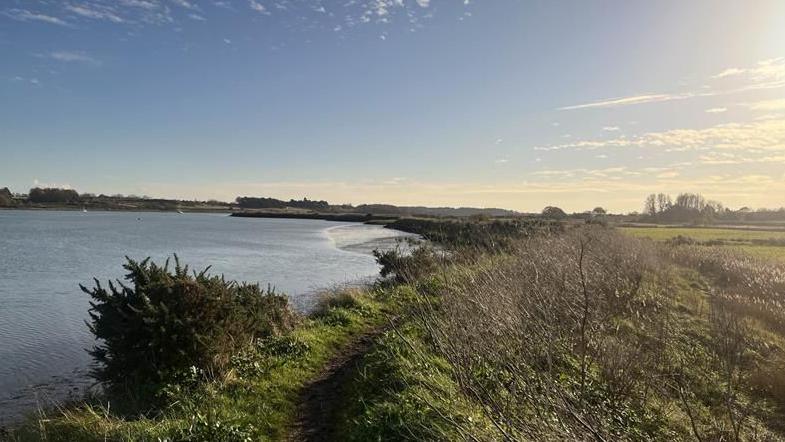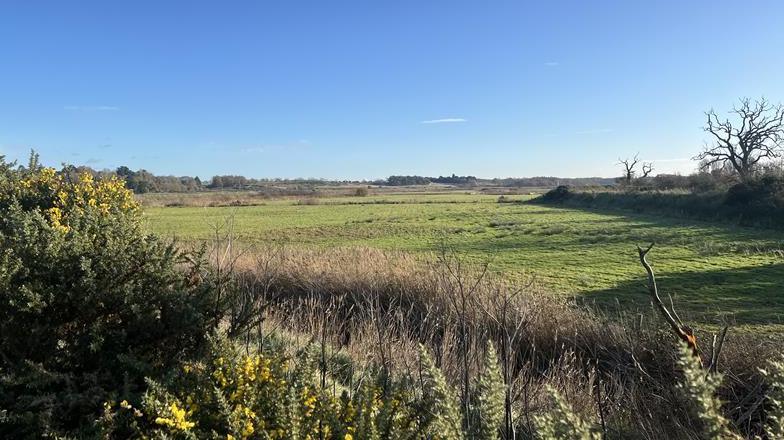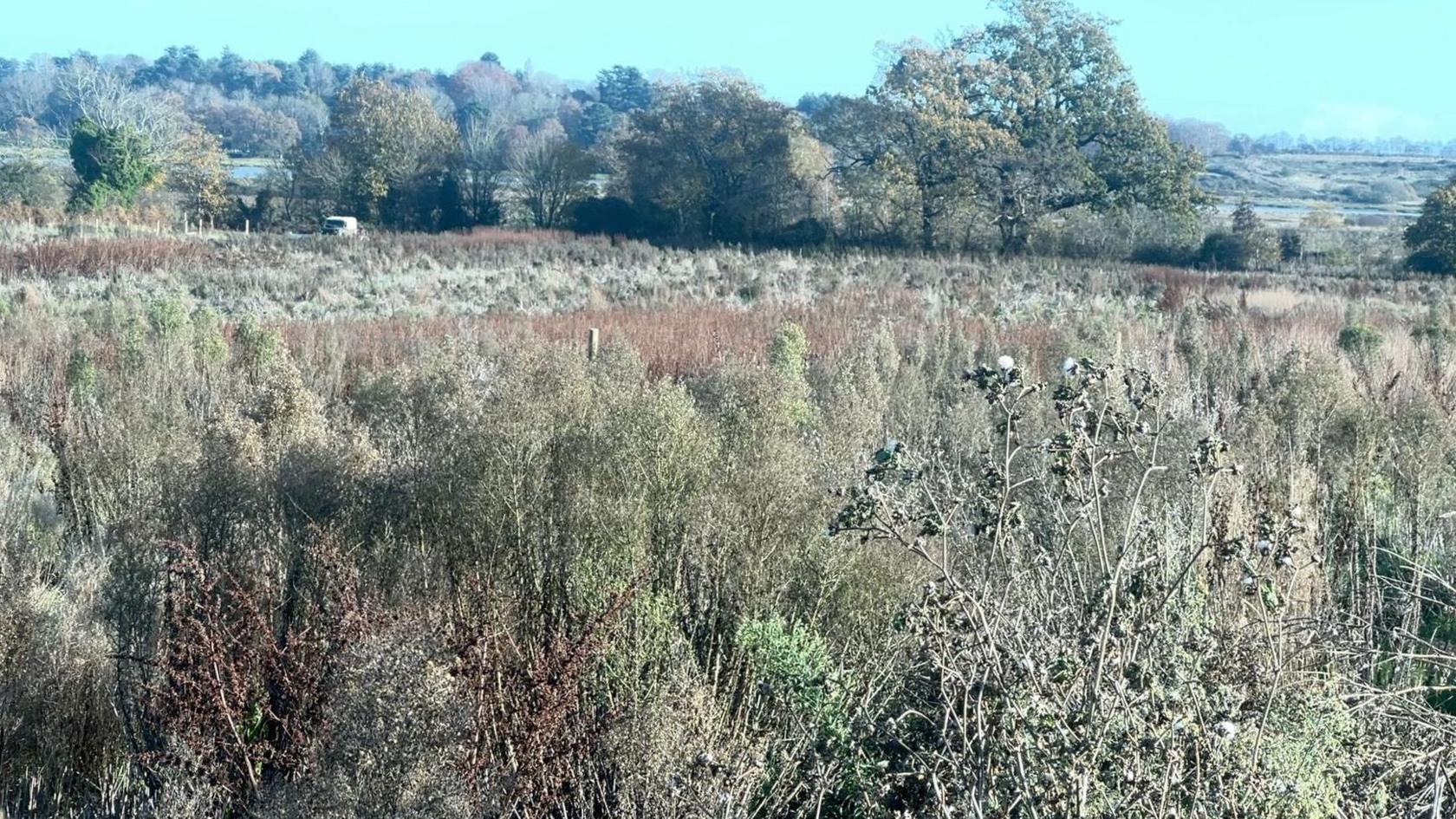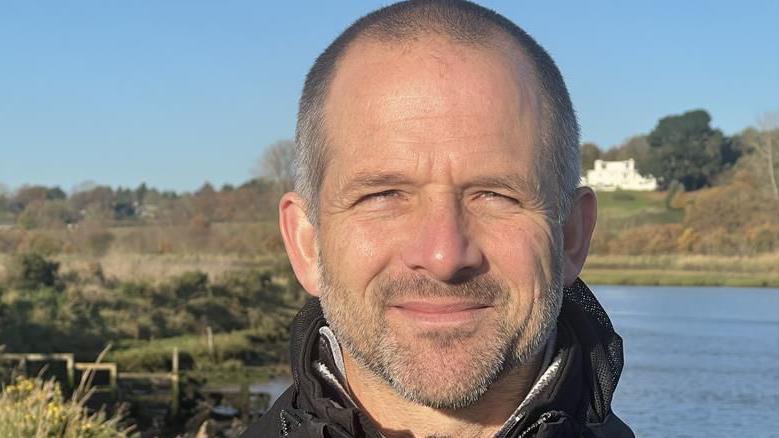Rewilding project under way on the Suffolk coast

Martlesham Wilds borders the Deben Estuary and has a range of habitats
- Published
Work to create one of the East Coast's newest nature reserves is under way.
Martlesham Wilds covers 289 acres next to the Deben Estuary in Suffolk.
The land, which used to be part of an organic farm, has a mosaic of habitats including salt marsh, grazing marsh, woodland and reedbeds.
Suffolk Wildlife Trust bought it in late 2023 following a fundraising campaign and it is rewilding the area.

Water levels will be raised on the grazing marsh for waders and wildfowl to use
The new reserve's warden, Jessica Ratcliff, said they have used Herdwick sheep and Belted Galloway cattle on the grazing marsh to improve the floristic diversity and create habitat suitable for the wading birds and wildfowl.
She added: "The estuary is such an important site for over-wintering wildfowl and waders and we hope to keep the grazing marsh as an important roosting site, somewhere they can rest and preen when the tide is high."
She continued: "The most pronounced change has been in the ground cover on the former arable land - it's been encouraging to see the diversity of species and the winter bird numbers including a wood lark territory which hasn’t been recorded here before.
"It's such a lovely diversity of habitat, providing the connectivity that's so important when restoring habitats."

This former arable field is now covered by a profusion of weeds including knapweeds and catchfly
Minimal intervention
The ethos of the new reserve is only to intervene when it is necessary.
Michael Strand, from Suffolk Wildlife Trust, said: "We're allowing nature to show what it wants to be in whatever place.
"We are going to monitor what animals and plants are moving into these spaces.
"We will only intervene when we feel we are not reaching the objectives we want for those species."

Michael Strand said they have been overwhelmed by people offering to volunteer
Biodiversity crisis
Ms Ratcliff said the new reserve was desperately needed.
"We have decline across the board in terms of birds, insects and mammals," she told the BBC.
"We are seeing precipitous declines, an average of 70% across insect species.
"This could be catastrophic so we need to take what action we can and bolster populations to give them safe havens and stop decline becoming extinction."
Follow Suffolk news on BBC Sounds, Facebook, external, Instagram, external and X, external.
Wildlife trust raises £1m for new nature reserve
- Published13 September 2023
New nature reserve to be created by rewilding farm
- Published14 April 2023
Get in touch
Do you have a story suggestion for Suffolk?